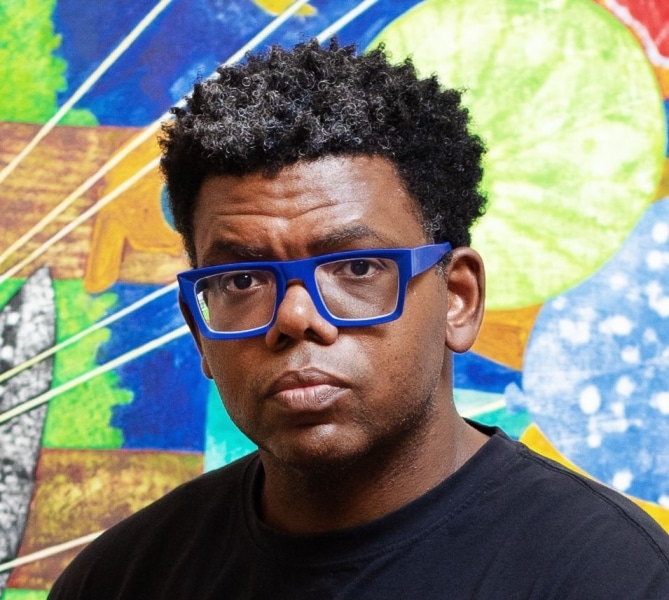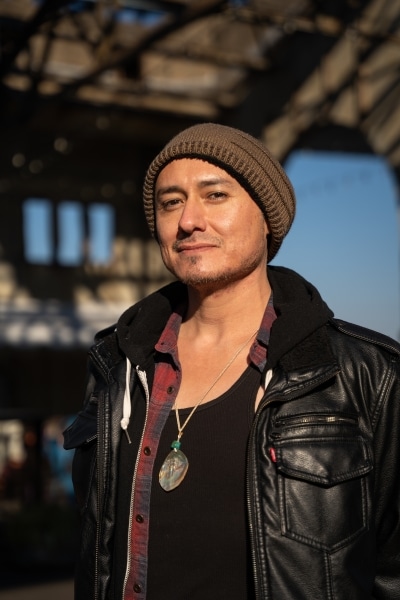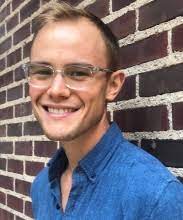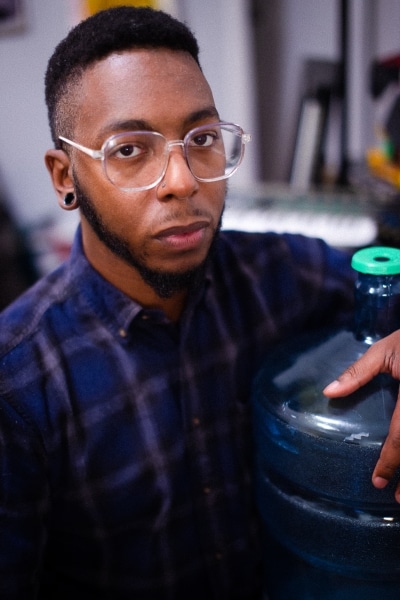
Mark Thomas Gibson’s personal lens on American culture stems from his multipartite viewpoint as an artist, a professor, and an American history buff. These myriad and often colliding perspectives fuel his exploration of contemporary culture through the language of painting and drawing, revealing a vision of America where every viewer is implicated as a potential character within the story.
In 2016, Gibson co-curated the traveling exhibition Black Pulp! with William Villalongo at 32 Edgewood Gallery, Yale School of Art. The show examined evolving perspectives of Black identity in American culture and history from 1912 to 2016 through printed media and artworks.
Gibson released his first book, Some Monsters Loom Large in 2016 with funding from the Foundation for Contemporary Arts. Gibson’s second book Early Retirement was released in 2017 with Edition Patrick Frey in Zurich and was acquired by the Metropolitan Museum of Art in New York.
In 2021, Gibson was awarded residencies at Yaddo and the Elizabeth Murray Artist Residency as well as a Fellowship from the Pew Center for Arts and Heritage, Philadelphia, PA and a Hodder Fellowship from the Lewis Center for the Arts, Princeton University, Princeton, NJ.
In 2022, Gibson was awarded a Guggenheim Fellowship from the Guggenheim Memorial Foundation, New York, NY and was named a 2022 Grantee by The Louis Comfort Tiffany Foundation New York, NY.
In February 2023 he had a solo exhibition Whirlygig! At Sikkema & Jenkins Co. and in March 2023 he was included in the exhibition Rising Sun: Artists in an Uncertain America at the African American Museum in Philadelphia. His most recent solo exhibition, A Finite Retelling of Non-Disputable Facts, will be exhibited at MOCAD in October 2023.
Mark Thomas Gibson is represented by M+B, (Los Angeles, CA) and Loyal, (Stockholm, Sweden). He is currently Associate Professor of Painting and Program Head at Tyler School of Art and Architecture, Temple University and lives and works in Philadelphia, PA.

Zachariah Julian serves as the Digital Media and Artistic Producer for We are the Seeds, a Philadelphia-based organization producing cultural events, programs, and workshops that celebrate and support Indigenous arts and artists throughout North America. He curates programs that are diverse, balanced, interesting, and entertaining. Zachariah composes music for From Here, With a View and other Seeds programs. Additionally, Zachariah edits daily content to upload to We Are the Seeds social media and archives, is a podcast producer and host. A musician and performer, he is knowledgeable in production and stage management. He has lived on the Apache Nation for 19 years and has been playing piano for over 20 years. Zachariah started composing when he was 16 and attended University of New Mexico majoring in Music Theory and Composition. He has just released a record titled Oblique.

Paul Wolff Mitchell is an anthropologist and historian working on the histories and afterlives of scientific racism in museums, the anthropological collection of human remains, and theories of racial difference and human origins in the 18th and 19th centuries. He is a postdoctoral scholar at the University of Amsterdam with a project titled “Pressing Matter: Ownership, Value, and the Question of Colonial Heritage in Museums,” funded by the Dutch Research Council (NWO).
Paul has held fellowships from the Consortium for the History of Science, Technology, and Medicine; the McNeil Center for Early American Studies; the Library Company of Philadelphia; the Fulbright U.S. Program; the German Academic Exchange Service; and the Wenner-Gren Foundation. He has also been a research fellow with the Penn and Slavery Project and the Penn Program on Race, Science, and Society. His research has been covered in Discover, Forbes, The Guardian, and the New York Times.

Tafari Robertson is a multidisciplinary artist based in Philadelphia, PA. He began his artist journey through painting, illustration and now works across mediums to explore the experiences layered within Black cultural spaces. He questions what are the artistic effects of space, the elements that create those experiences, and what ripples out when these spaces are created, sustained or destroyed.
His Book Space Archive is a series of audio collages developed through an investigative oral history practice conducted with historically Black bookstores across the U.S. Through interviews with owners and patrons, he pieces together themes and histories to create a new conversation for audiences to engage with, highlighting the energies preserved in these spaces that have upheld Black culture and are too often lost without notice.
Currently developing his speculative practice, his Future Forms explore the effects of administrative design toward creating perceptions of permanence and authority as pillars for institutional buy-in. He uses this work to build on the imaginative possibilities of creating new worlds for those ignored or diminished in our current frameworks.




